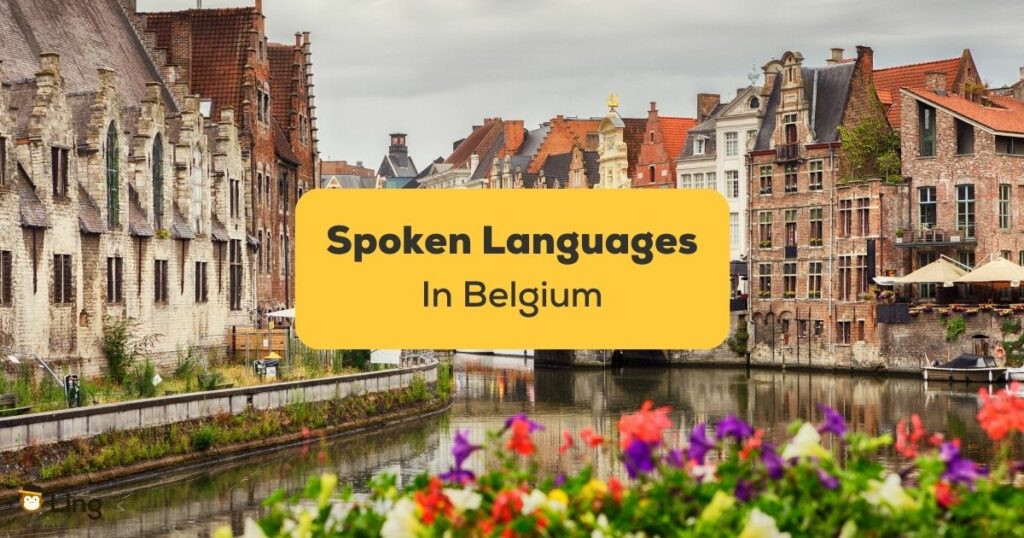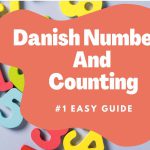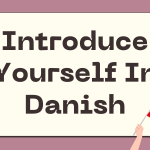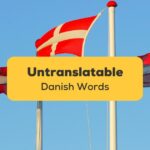Hello to the curious minded people who love to learn languages! Today, we’re embarking on a linguistic adventure to Belgium, a country renowned not just for its delicious chocolates and waffles, but also for its fascinating blend of spoken languages. Where else can you find so many native people speaking different languages? So, let’s dive into the captivating world of spoken languages in Belgium!
Spoken Languages In Belgium – A Historical Melting Pot
Belgium has a rich linguistic history that, to be honest, is a bit confusing. Throughout the ages, various cultures and powers have left their mark, leading to the coexistence of several languages. Historically, the three official languages spoken in Belgium are Dutch, French, and German, thanks to the influence of neighboring countries like the Netherlands, France, and Germany.
Dutch: The Language Of Flanders
The most popular language spoken in Belgium is Dutch, the reigning monarch of the northern region known as Flanders. Known for its quirky idioms and that charming guttural “g,” Flemish Dutch has a significant presence in the Belgian linguistic landscape, for most people in Belgium speak Dutch. Flemish folks are known for their love of surrealism and cycling, but they’re equally passionate about their language!
French: The Region Of Wallonia
A large majority of people speak French. As we go down south to the enchanting region of Wallonia, the air gets a tad more sophisticated as French takes the spotlight. From Victor Hugo to Voltaire, French has lent an air of elegance to the Walloon regional dialects culture.
German: The Hidden Gem Of The East
Venturing eastward, we stumble upon the German-speaking area nestled within the lush hills of the picturesque East Cantons. This charming minority showcases Belgium’s commitment to diversity. With German influences coloring their language, culture, and cuisine, this French community is a haven for anyone looking to uncover an often overlooked facet of Belgium’s linguistic treasures.
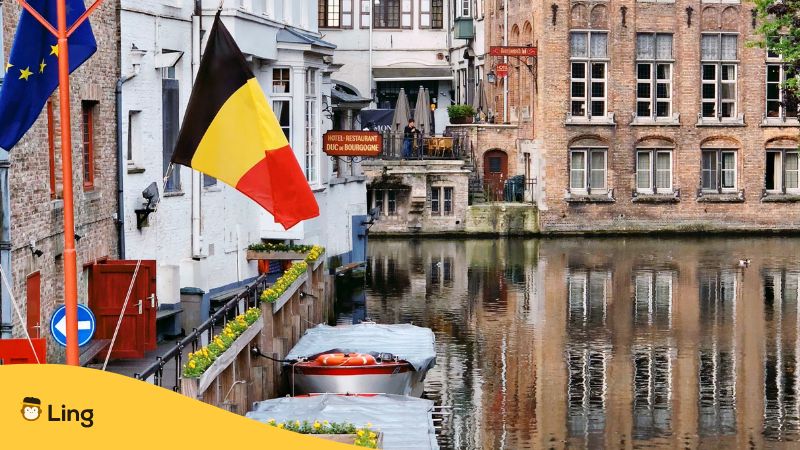
A Sprinkle Of Influence From Each Other
What makes Belgium’s linguistic landscape truly unique is the delightful influence between its spoken languages. Over time, the languages have borrowed words and expressions from each other, creating a wholly unique linguistic melting pot. This cross-pollination has not only enriched the languages themselves but has also fostered a sense of unity among Belgium’s diverse communities. They have a variance of their own Belgian languages through these influences!
Let’s look at examples in each of the three spoken languages in Belgium.
French With A Belgian Twist
C’est le bouquet! – This vibrant expression, literally translating to, “It’s the bouquet,” is used when something unexpected or surprising happens!
Faire la pluie et le beau temps – Translating to, “To make the rain and the nice weather,” this idiom describes someone who wields a lot of influence and control. Basically, they can decide whether it’s sunny or stormy in their domain!
German Spoken From The East
Die Fliegen mit Butter schlagen – In English, this would sound like, “To beat flies with butter.” It means to take a roundabout way to solve a problem or achieve something, even if it’s unnecessarily complicated.
Der springende Punkt – Translating to, “The jumping point,” this phrase refers to the crux of the matter, the heart of the issue. It’s like finding the needle in the haystack, but with a more dynamic twist!
Dutch Delights In Flanders
Er is geen kat in huis – Literally meaning, “There is no cat in the house,” this Dutch expression is used to describe an empty or deserted place. It’s like saying it’s so quiet you could hear a pin drop.
Het regent oude wijven – When it’s raining heavily, the Dutch in Belgium have a creative way of describing it: “It’s raining old women.” Don’t worry, no grannies are falling from the sky, it’s just a colorful metaphor!
So, whether you’re trying to impress locals in Brussels with your Belgian French, navigating the cobbled streets of Liège with your Belgian Dutch, or enjoying a hearty conversation in the East Cantons with your Belgian German, remember to sprinkle these unique expressions for a truly immersive experience. It’s a linguistic adventure you won’t want to miss!
For the curious minded, check out this article on the youngest language in all official languages of the world!
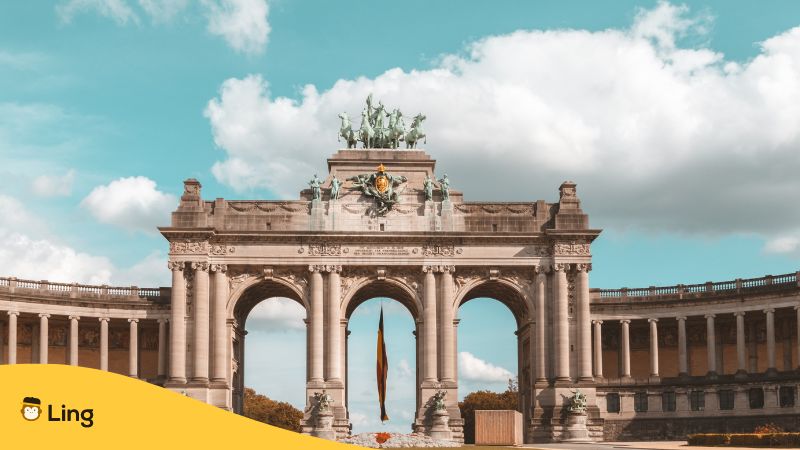
Regional Dominance
Now, let’s explore which official language now takes center stage in different parts of Belgium:
- In Flanders, Dutch reigns supreme. From the picturesque canals of Bruges to the bustling streets of Antwerp, Dutch is the language of choice for most Flemings.
- Travel southward to Wallonia, and French unfurls its poetic charm. The historic streets of Namur and the vibrant city of Liège resonate with the melodies of the French language.
- Finally, the East Cantons, tucked away in the east, harbor the German language’s soft-spoken grace.
Statistics And Modern Culture
In the contemporary Belgian landscape, around ten languages are spoken. 60% of the population has the primary language Dutch, while the second most spoken language is French, at roughly 40% The German-speaking community comprises a tiny but proud 1%.
The language locals speak depends on their dominant language, and most speak English as well. Dutch and French speakers mainly rule, though. The linguistic diversity is not just a point of interest but an integral part of Belgian life.
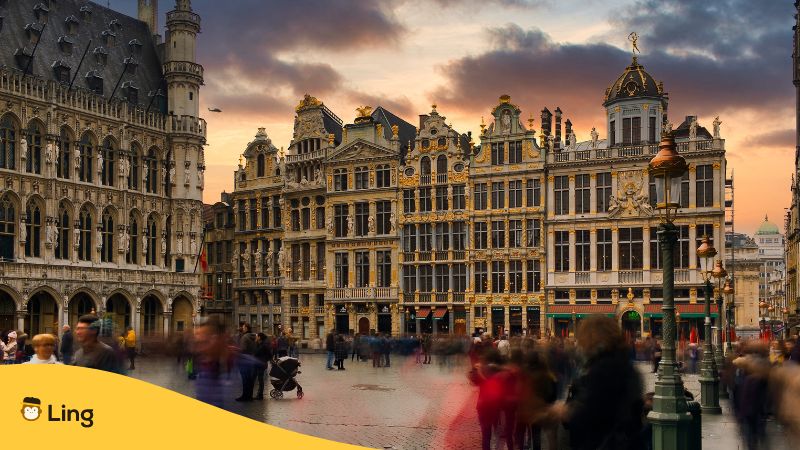
Let’s Wrap It Up
Belgium’s spoken languages are more than just a means of communication; they’re threads of culture, history, and unity. So, whether you’re munching on Belgian waffles in Brussels, admiring the architecture in Ghent, or savoring a rich Belgian ale in Liège, take a moment to appreciate the beauty of this linguistic mosaic that makes Belgium truly special.
If you learned something in this article, and you feel the fire to learn more about other languages too, then download the Ling app to further your language progression in a fun, interactive space. Download it on the App Store and Play Store for free today, and you’ll be set for your next trip to Belgium!
